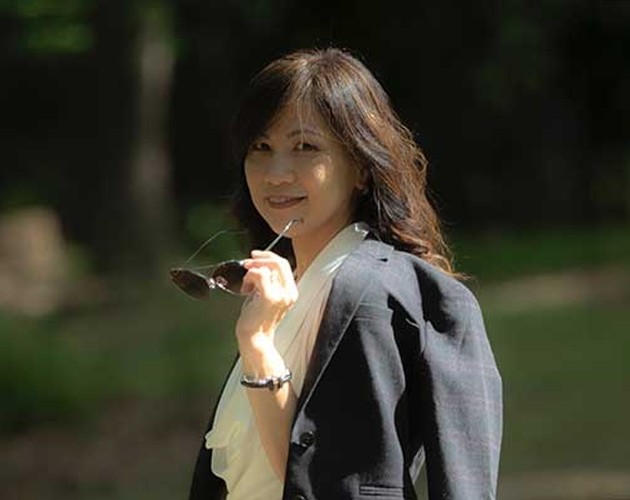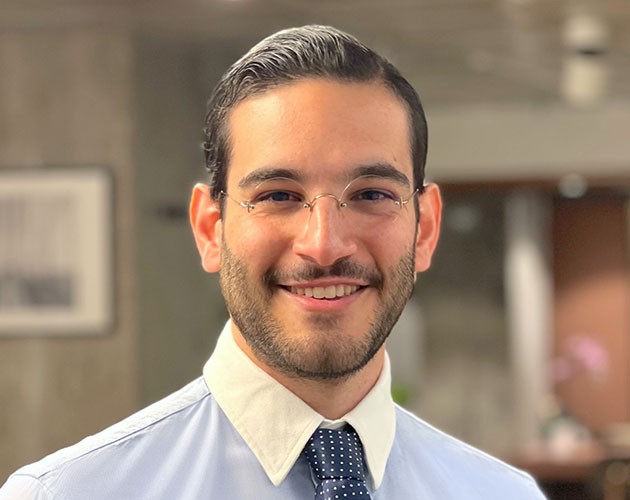Event Recap: 2025 Personal Financial Planning Career Night

In March, current and prospective students of our Certificate Program in Personal Financial Planning were excited to meet in person for our annual Career Night. Members of the certificate’s advisory board and those of the Bay Area’s professional financial planning community—many of whom are hiring!—joined the audience to hear distinguished panelists talk about their journeys.
Campbell Judge, senior VP at Fidelity Investments Institutional Services and a certificate advisory board member, jump-started the event by saying, “Our clients are what keep us going. They are the ones whose problems we're helping to solve, which makes us an incredible business. The most rewarding part of this work is what we do for our clients.”
He continued by emphasizing the demand for advisers, not only now but in the near future. “There are currently about 300,000 advisers in the country, and a third of them are Certified Financial Planners®. In the next 10 years, the field is expected to lose about 40 percent of them. A recent study found that we’re going to need close to 100,000 new advisers during the next 10 years.”
And for those who are ready to commit to an engaging and critical career in personal financial planning, the panel could not stress this enough: It’s all about connecting with clients and prospects, earning their trust. Those who can earn that trust the fastest among clients and prospects win the business, and they're with you for a long, long time.
So let’s meet the panel:
Ariana Alisjahbana, CFP®
Lead advisor at North Berkeley Wealth Management
Read about Ariana’s journey.
Ryan Duncan Anderson, CFP®, AIF®, EA
Partner and financial planner at Rydge Wealth Management
Jose Campos, AIF®, EA, CIMA®,CPWA®, CFP®
Managing partner and financial planner at Rydge Wealth Management
And our moderator
Michael Ma, CFP®, MSFS, ChFC®
Principal at Parallel Advisors, LLC
Let’s start by having our panelists introduce themselves and how they got into the business.
Ryan Duncan Anderson: I was born in Denmark and grew up in South Africa. I worked on a cruise ship for three years, where I met my lovely wife who's from Pleasanton, California. We came back here, and I didn't know what to do for a living. Her father was going through some financial issues and I started to look into the field. I finished a program, got my CFP® while we lived in India for a little while, and then came back and became an adviser in 2011.
Ariana Alishjahbana: I made a career change to this profession three years ago. Personal financial planning was a hobby for many, many years; I didn't know you could get paid to do this. I met a CFP® at a party, and he really focused on the clients instead of all these corporate goals. He told me about the UC Berkeley Extension certificate and I haven’t looked back.
Jose Campos: When I was in college, I got an internship at a finance firm that wanted me to recruit financial advisers to join the firm. Within a matter of weeks, they offered me a job. I was still in college, and I started learning a little bit more and realized that the client side might be very interesting. I was recruiting a financial adviser to replace someone who was about to retire to join our firm and she ended up not taking the position. Within a couple of months, she reached out, and said, “Hey, my junior associate just quit. Do you want to apply for the job?” I did not have my degree yet, which was a prerequisite, but she said, “I'll let you interview anyway.” I started working with her in taxation because I was studying accounting and she taught me everything about financial advising, more specifically about investing. I started to get interested in earning a CFP® and found the Extension program. I got my CFP® in 2018 and I've been in the industry ever since.
Jose, when you started, you were 22. This is a common question for people entering really any field, but especially a client-facing field where you're giving financial advice. Who wants financial advice from a 22 year old? Talk about that challenge.
During that time, my adviser was a lot older so it wasn't so uncommon for clients to essentially have confidence in us if we had a senior adviser in the meetings. It wasn't until I started becoming more client-facing that I realized how big of an issue it was.
I met my first client—who is still my client—while I was doing the program and I had just finished a couple of designations. If I can't show with experience, let me show with designations to give myself a little bit more confidence when working with clients. I was working with her on taxations on her crypto transactions back in 2018. I worked with her on that for five years and then I told her we also do financial planning and would she want to work with me on the wealth management side.
She agreed and while we were in the middle of the discovery, she asked how old I was. I asked, “How old do you think I am?” And she said, “I think you're in your 30s.” I replied, “After you open your account, I'll tell you how old I am.'
She opened the account and then sure enough asked me again, and I said I'm 22 and she said to me, “If you would have told me that before we started this, I would have never started working with you just because of the age.” To this day, I always remember that story because she was the first client I ever had.
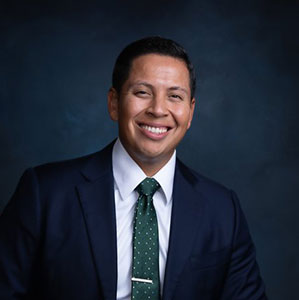
In this industry, mentorship and learning from other advisers are the ways I've grown because I’m hearing about their experiences and stories.
—Jose Campos
Let’s talk about habits or strategies that you think have been instrumental in your success thus far.
Jose: It’s about who you can lean on to give valuable advice; for me, it was getting mentored by the CEO at my first company. He told me, “Yeah, you're recruiting advisers, but you should still get licensed.” I listened, thankfully, and I got a license because you’ve got to start somewhere. In this industry, mentorship and learning from other advisers are the ways I've grown because I’m hearing about their experiences and stories.
Ryan: Find an adviser who you admire, who does good work. For me, that was Nick Murray. I make my clients read his book, Simple Wealth, prior to them agreeing to become clients because it gets us all on the same page. Find someone who's done it before because we're not doing something brand new. That book reminds you of the value that you bring.
What about the emotional aspects of the work?
Ariana: What attracted me to financial planning was the technical aspects of it. My very first financial planning role was at North Berkeley as an associate adviser. My role was to just learn from the senior advisers, which is great because I was new to the industry. I had already passed the CFP® exam, but in this role I got to learn about “reality financial planning.”
That was a steeper learning curve for me because of the emotional aspects of being a financial planner. You're there, face to face with a client—and, thankfully, I was with the lead adviser who also graduated from this certificate—and you're supposed to manage the meeting in such a way that they come away from it relieved. For that first year, I really focused on that through coaching, feedback from the team on how you make a client feel relieved. How do you deploy your knowledge about financial planning in a way that the client can actually receive them?
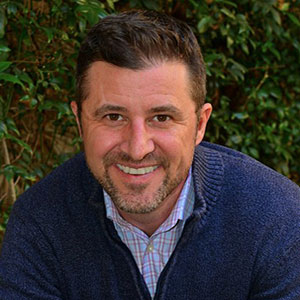
I think people think we're money managers and we're not; we're much more counselors than we are money managers.
—Ryan Duncan Anderson
Any advice for starting out in a career?
Jose: The route I took was acquisition of a practice, but I didn't know it until I was in it. So if I had to restart, an associate adviser is the way to go. I didn't realize the industry was rising in the past five years, but that's the route I would have taken. To become a good adviser is by joining a firm and slowly moving up in the ranks or finding an adviser who wants to retire to take over their practice and continue the duty of care that they have for those clients.
Ariana: I entered the business as an associate financial planner. I needed to learn—and learn how to do it right. So I looked at associate financial planning roles and specifically for teams that have a diamond team structure. A diamond team is basically a senior adviser with two lead advisers and one associate, where the associate's role is to become a lead adviser and there's structured programs to get you there.
Ryan: The way I grew my business was by doing the tax and the finance side. I learned how to give advice on stock options—I learned everything I could. I was able to grow my business by simply focusing on that one area and then slowly doing the same things over and over and over again until people started to spread the word.
What is the biggest misconception about being a financial adviser?
Jose: Salesman—very broad. No one really knows who they're working with until you fully lay out the whole structure of your firm.
Ryan: I think people think we're money managers and we're not; we're much more counselors than we are money managers.
Ariana: A lot of people associate financial advising with investments, and that is the most robotic or automated part of our role. I think in our industry there will be a bigger pie for advice only.
How do you balance work, life and personal development?
Ariana: That's one of the things that drew me into this profession: I saw that there were many women in the industry, a lot more than say investment banking or other finance roles or even at the high levels of tech. Many of them also identify as parents, so when I was trying to decide whether I wanted to go in this industry, I knew I wanted to have a family one day and I wanted to be in a role where my career could support that. I have a 30-minute walk from work. I can drop off my kid at daycare, pick her up and no problems. It's a role that really fits into my life.
Jose: When you love what you do, it's really hard to turn it off after hours. That's the biggest struggle I have.
Ryan: When we're independent, we choose our hours and that's what I love about the flexibility of the role as an adviser. No great life is easy. Starting any business is a lot of effort.
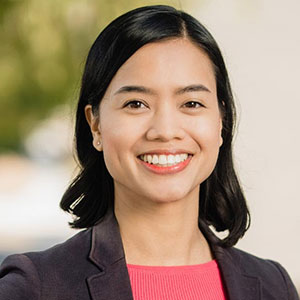
A lot of people associate financial advising with investments, and that is the most robotic or automated part of our role. I think in our industry there will be a bigger pie for advice only.
—Ariana Alisjahbana
Audience question: What can you say about working with family or friends?
Jose: I find it to be a very tricky subject because there are lines. For me, I wouldn't do it primarily, but I've seen it done, so it is possible if you have the right relationship with your family.
Ariana: We work with families of staff or of the founders’ because we have other advisers you can assign them to who are not their family members. That's a benefit of being on a larger team.
Ryan: I'm not gonna go out and push what I do. But if they come to me, that's their decision and I would feel terrible if I saw them make a mistake and I knew that I could have stopped that.
Final piece of advice to someone entering the advisory field?
Ryan: Try and avoid Zoom and Teams. Be out there, go visit your clients. If your face is on a computer screen, that can easily be replaced. The human side is the most important, so don't let us become just a replica of something on a screen.
Jose: Understand exactly why you're doing it. If you're doing it because you hear that some advisers are in finance and make a lot of money, that's not a reason because it is really hard when you start off, but it's really rewarding working with the clients.
Ariana: For aspiring financial planners, I have a very practical piece of advice: If you're in the Bay Area, attend FPA of Northern California because all the employers and the people who are in this industry are there. This is a very network-heavy industry: If you want to get your first job, you need to get to know them and meet them.
